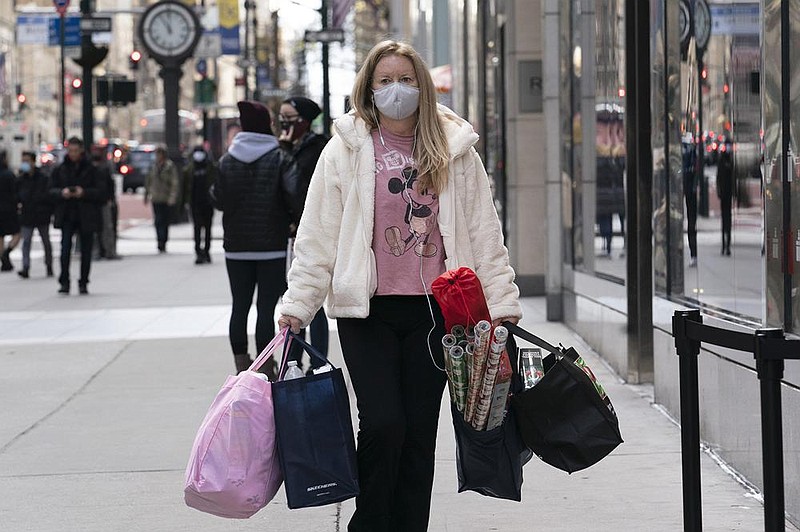WASHINGTON -- U.S. consumer prices edged up 0.2% in November as a rise in the cost of energy and a number of other goods offset a drop in food costs.
The gain in the consumer price index followed a flat reading in October and matched the 0.2% September advance, the Labor Department reported Thursday. Still, the increase is far below the 0.6% gains in June and July as the country began to reopen after the pandemic throttled economic activity in the spring.
Overall prices are up 1.2% over the past year while core inflation, which excludes volatile food and energy, has increased 1.6% over the past 12 months. For November, core inflation was up 0.2%, matching the overall price gain.
Tame inflation has been a hallmark of the pandemic, as the coronavirus has curbed demand for services, which make up about 60% of the overall consumer price index and 75% of the core measure. Market participants are increasingly predicting prices to pick up next year as demand increases for those industries most affected by the coronavirus.
Inflation has been consistently running below the Federal Reserve's 2% goal, which is measured by the Commerce Department's personal consumption expenditures price index. That has allowed the Fed to push interest rates to ultra-low levels to provide support for an economy struggling to emerge from a pandemic-related recession.
In November, food prices dipped 0.1% while energy prices were up 0.4%. The energy gain reflected increases in electricity and natural gas prices, which offset a 0.4% drop in gasoline prices.
Clothing costs climbed 0.9%.
Prices for used cars and trucks, new cars and medical care declined in November.
While services costs picked up last month by the most since July, a broadening of inflation will likely take time as the nation awaits the distribution of covid-19 vaccines. Currently, merchants have limited leeway to charge customers more as unemployment remains elevated and a surge in infections prompts some states and cities to reimpose restrictions on business.
The report showed the cost of transportation services jumped 1.8%, the most in four months. Airfares rose 3.5% after a 6.3% increase a month earlier, and motor vehicle insurance advanced 1.1% in November. Hotel and motel room prices were 3.9% more expensive than in October, the largest gain since 2005.
Economists expect inflation to remain under control in coming months until vaccines are widely available and consumers feel more confident shopping or taking part in other public activities.
"Inflation will remain low in the near term," said Gus Faucher, chief economist at PNC Financial. "Although some prices are rising because of improved demand and constricted supply, there are still huge swaths of excess capacity in many parts of the economy in industries such as hotels, airlines and energy."
A separate Labor Department report on Thursday showed applications for state unemployment benefits increased in the week ending Saturday. While the figure may reflect volatility around the Thanksgiving holiday, it also indicates that more business shutdowns amid a spike in infections are playing a role.
Information for this article was contributed by Martin Crutsinger of The Associated Press and by Reade Pickert of Bloomberg News.
